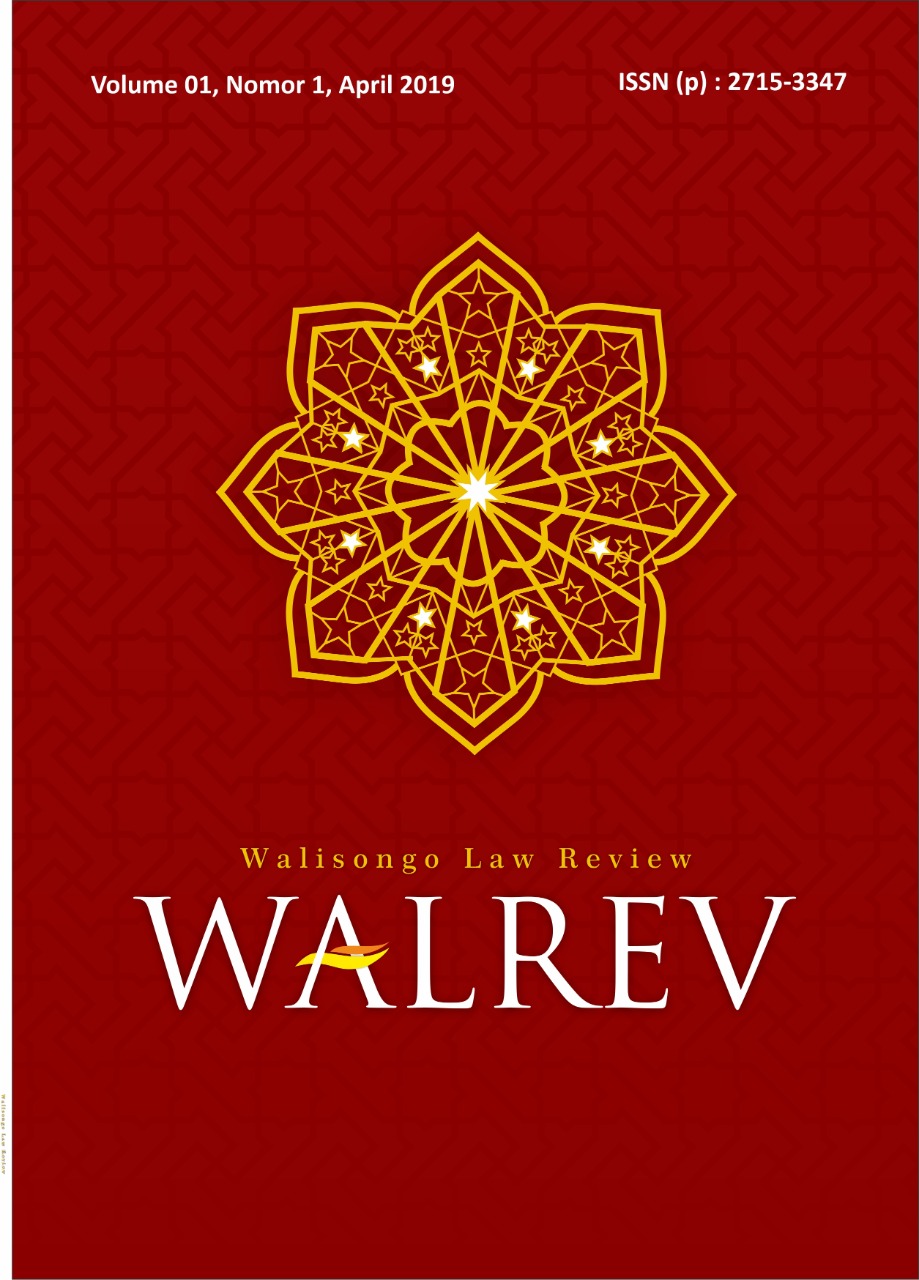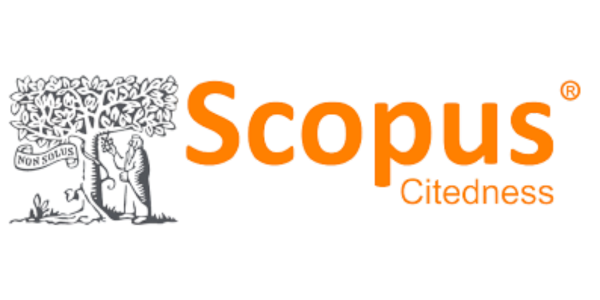Understanding the Nature of Legal Knowledge: In-Depth Critique of the Legal Fiction Principle
DOI:
https://doi.org/10.21580/walrev.2023.5.2.17560Keywords:
Legal Fiction, Positive Law, RegulationAbstract
This article seeks to explore the meaning and purpose of the foundation of pure legal fiction, criticizing it. This article asks the fundamental question: Why should legal knowledge be understood? With arguments based on empirical facts and literature, the analysis concludes that the foundations of legal fiction become irrational when applied in social life, especially given the high quantitative complexity and legal language. Public understanding of the law is a source of ethics, customs, and empirical experience, requiring a contextual regulatory approach. Therefore, the fundamental change in the knowledge of the law that society expects to become optional provides a new foundation more in line with social reality. This articulation can contribute to positive legal thinking and broaden public insight into the role of law in everyday life.
Artikel ini berupaya untuk mengeksplorasi makna dan tujuan dari asas fiksi hukum sembar memberikan kritik terhadapnya. Artikel ini mengajukan pertanyaan mendasar, yaitu mengapa pengetahuan hukum perlu dipahami? Dengan argumentasi yang didasarkan pada fakta empiris dan literatur, analisis menyimpulkan bahwa asas fiksi hukum menjadi tidak rasional ketika diterapkan dalam kehidupan sosial, terutama seiring dengan kompleksitas jumlah dan bahasa hukum yang tinggi. Pemahaman masyarakat terhadap hukum bersumber dari etika, kebiasaan, dan pengalaman empiris, memerlukan pendekatan regulasi yang kontekstual. Oleh karena itu, perubahan asas dari pengetahuan hukum yang diharapkan masyarakat menjadi tidak wajib, memberikan landasan baru yang lebih sesuai dengan realitas sosial. Artikulasi ini dapat memberikan sumbangan pada pemikiran hukum positifistik dan perluasan wawasan masyarakat terhadap peran hukum dalam kehidupan sehari-hari.
Downloads
References
Annurdi, Annurdi. 2017. “Penerapan Fiksi Hukum (Fictie Van Wil En Vertrouwen) Dalam Kontrak Baku.” Jurnal Hukum Media Bhakti. doi: 10.32501/jhmb.v1i2.11.
Belov, Sergei A., and Kristina V. Tarasova. 2019. “Intelligibility of Legal Documents: Legal Fiction or Presumption?” Vestnik of Saint Petersburg University. Law 10(4):610–25. doi: 10.21638/spbu14.2019.401.
Dahlan, Mohammad. 2009. “Pemikiran Filsafat Moral Immanuel Kant (Deontologi, Imperatif Kategoris Dan Postulat Rasio Praktis).” Jurnal Ilmiah Ilmu Ushuluddin 8(1). doi: 10.18592/jiiu.v8i1.1369.
Demos, Raphael. 1923. “Legal Fictions.” The International Journal of Ethics 34(1):37–58. doi: 10.1086/intejethi.34.1.2377234.
Faradillah, Candra Vira. 2023. “Optimizing Coastal and Small Island Areas through Industrial Reclamation: An Examination through the Lens of Utilitarianism Theory.” Walisongo Law Review (Walrev) 5(1):1–30. doi: https://doi.org/10.21580/walrev.2023.5.1.13557.
Harun, Muhammad. 2019. “Philosophical Study of Hans Kelsen’s Thoughts on Law and Satjipto Rahardjo’s Ideas on Progressive Law.” Walisongo Law Review 2(2):199–226.
HSB, Ali Marwan. 2016. “Mengkritisi Pemberlakuan Teori Fiksi Hukum (Criticising Enactment of Law Fiction Theory).” Jurnal Penelitian Hukum De Jure 16(3):2510264.
Kraevsky, A. A. 2021. “Validity and Efficacy of International Law According to the Pure Theory of Law.” Vestnik Sankt-Peterburgskogo Universiteta. Pravo.
Lukman, Santoso, and Yahyanto Yahyanto. 2016. Pengantar Ilmu Hukum. Jakarta: Setara Press.
Del Mar, Maksymilian. 2015. “Legal Fictions and Legal Change in the Common Law Tradition.” Pp. 225–53 in Legal fictions in theory and practice.
Mashruwala, Parita. 2020. “Legal Fictions : Do They Fit the Juristic Reality ?” International Journal of Legal Science and Innovation 2(3):76–82.
Nursari, Nindya. 2020. “Analisis Yuridis Unsur Ignorantia Legis Excusat Neminem Dalam Kasus Pembakaran Mayat Di Kecamatan Sanden Bantul Yogyakarta.” Jurnal Kewarganegaraan 4(2):154–59. doi: 10.31316/jk.v4i2.1167.
Oktavinanda, Pramudya A. 2013. “Positivisme Hukum Dan Pendekatan Hukum Dan Ekonomi-Suatu Pembelaan (Legal Positivism and Law and Economics-A Defense.” SSRN Electronic Journal.
Park, Yoon Soo, Lars Konge, and Anthony R. Artino. 2020. “The Positivism Paradigm of Research.” Academic Medicine 95(5):690–94. doi: 10.1097/ACM.0000000000003093.
Paulson, Stanley L. 2020. “Hans Kelsen as Outliner: The Defence of a Radical Norm Theory.” in Contemporary Perspectives on Legal Obligation. Routledge.
Priyatno, Dwidja, and M. Rendi Aridhayandi. 2018. “Resensi Buku (Book Review) Satjipto Rahardjo, Ilmu Hukum, Bandung: PT. Citra Aditya, 2014.” Jurnal Hukum Mimbar Justitia 2(2):881–89. doi: 10.35194/jhmj.v2i2.36.
Purbacaraka, Purnadi, and Soerjono Soekanto. 1983. “Pendidikan Hukum Dan Bahasa Hukum.” Jurnal Hukum & Pembangunan 13(3):233–39. doi: 10.21143/jhp.vol13.no3.965.
Purbacaraka, Purnawidhi W. 2017. “Sekilas Tentang Bahasa Hukum.” Jurnal Hukum & Pembangunan 3:139–55. doi: 10.21143/jhp.vol0.no0.194.
Qamar, Nurul, and Hardianto Djanggih. 2017. “Peranan Bahasa Hukum Dalam Perumusan Norma Perundang-Undangan.” Jurnal Ilmiah Kebijakan Hukum 11(3):337–47. doi: http://dx.doi.org/10.30641/kebijakan.2017.V11.337-347.
Rahardjo, Satjipto. 2014. Ilmu Hukum Cetakan Kedelapan. Bandung: Citra Aditya Bakti.
Rahmad Nuthihar, Mursyidin, and Wahdaniah. 2020. “Karakteristik Ragam Bahasa Hukum Dalam Persidangan Di Pengadilan Negeri Banda Aceh.” Jurnal Metamorfosa 8(1):90–104. doi: 10.46244/metamorfosa.v8i1.343.
Riofrío, Juan Carlos. 2019. “Kelsen, the New Inverted Pyramid and the Classics of Constitutional Law.” Russian Law Journal 7(1):87–118. doi: 10.17589/2309-8678-2019-7-1-87-118.
Risnain, Muh. 2015. “Konsep Peningkatan Kuantitas Dan Kualitas Program Legislasi Nasional: Rekomendasi Konseptual Dan Kebijakan Pada Prolegnas 2015-2019.” Jurnal Rechts Vinding: Media Pembinaan Hukum Nasional 4(3):399–411. doi: 10.33331/rechtsvinding.v4i3.13.
Ryan, Gemma. 2018. “Introduction to Positivism, Interpretivism and Critical Theory.” Nurse Researcher 25(4):41–49. doi: 10.7748/nr.2018.e1466.
Saleh, Ahmad, Malicia Evendia, and Martha Riananda. 2020. “Pemetaan Kebutuhan Produk Hukum Daerah Dalam Rangka Mewujudkan Kabupaten/Kota Layak Anak.” Kanun Jurnal Ilmu Hukum 22(1):1–24. doi: 10.24815/kanun.v22i1.15694.
Samekto, FX. Adji. 2019. “Menelusuri Akar Pemikiran Hans Kelsen Tentang Stufenbeautheorie Dalam Pendekatan Normatif-Filosofis.” Jurnal Hukum Progresif 7(1):1–19. doi: 10.14710/hp.7.1.1-19.
Setiadi, Wicipto. 2018. “Simplifikasi Peraturan Perundang-Undangan Dalam Rangka Mendukung Kemudahan Berusaha.” Jurnal Rechts Vinding: Media Pembinaan Hukum Nasional 7(3):321–34. doi: 10.33331/rechtsvinding.v7i3.288.
Silitonga, Tatar Bonar. 2020. “Tantangan Globalisasi, Peran Negara, Dan Implikasinya Terhadap Aktualisasi Nilai-Nilai Ideologi Negara.” Jurnal Civics: Media Kajian Kewarganegaraan 17(1):15–28. doi: 10.21831/jc.v17i1.29271.
Da Silva Barreto, Williem, and Sérgio Urquhart De Cadermatori. 2021. “Pure Theory of Law: Criticism of Interpretation in Kelsen.” Revista de Direito Da Faculdade Guanambi 8(1). doi: 10.29293/rdfg.v8i01.302.
Downloads
Published
How to Cite
Issue
Section
License
Copyright (c) 2023 Adhi Putra Satria, Eugenia Brandao

This work is licensed under a Creative Commons Attribution-ShareAlike 4.0 International License.










